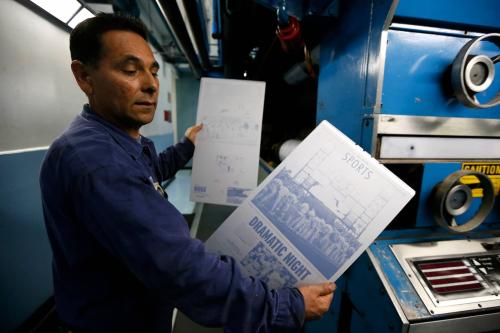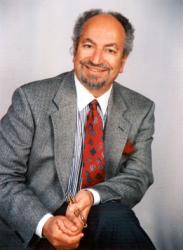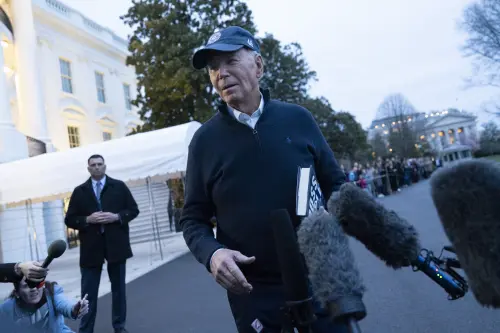

12:00 pm EDT - 2:00 pm EDT
Past Event
12:00 pm - 2:00 pm EDT
Saha 43, Bldg. 63
West Bay Doha
Content from the Brookings Doha Center is now archived. In September 2021, after 14 years of impactful partnership, Brookings and the Brookings Doha Center announced that they were ending their affiliation. The Brookings Doha Center is now the Middle East Council on Global Affairs, a separate public policy institution based in Qatar.
On Monday, March 17, 2008, The Brookings Doha Center, a project of the Saban Center for Middle East Policy at the Brookings Institution, hosted a distinguished panel to address the topic of the Arab Satellite TV Charter passed in Cairo on February 12, 2008. The policy discussion was the first to take place on the premises of the recently inaugurated Brookings Doha Center (BDC) and the third to be organized by the BDC since its launch in 2007.
The discussion was moderated by Hady Amr, director of the Brookings Doha Center and fellow at the Saban Center for Middle East Policy. Guest speakers on the panel included Ibrahim Helal, deputy managing director of Al Jazeera English; Saad Eddin Ibrahim, professor of political sociology at the American University in Cairo and distinguished visiting professor at Istanbul Kültür University; and Michael Ratney, American chargé d’affaires in Qatar.
The debate focused on the contents of the recent Arab Satellite TV charter—formally referred to as the “Suggested Guidelines and Principles for Organizing Satellite TV in the Arab World”—which was passed unanimously by Arab ministers of information with Qatar abstaining. While one of the Arab information ministers who signed the charter said the aim of the document was “to protect society […and] not for political benefit or to defend a specific party’s point of view,” critics said the charter would repress rather than progress the freedom of knowledge and expression in the Arab world. Some experts in Arab countries have called the new set of guidelines “binding” while others have disagreed. The charter, which forbids offending leaders or damaging social harmony, has another notable feature: it contains a set of escalating penalties for non-confirming channels, ultimately resulting in revoking a non-conforming channel’s permit to operate.
The speakers also addressed potential repercussions of the charter on journalistic practices and civil society in the Arab world and compared and contrasted the new regulatory document to media laws in the United States.



Courtney C. Radsch
March 25, 2024

Ben Harris, Aaron Sojourner
March 6, 2024

Linda Peek Schacht
March 5, 2024